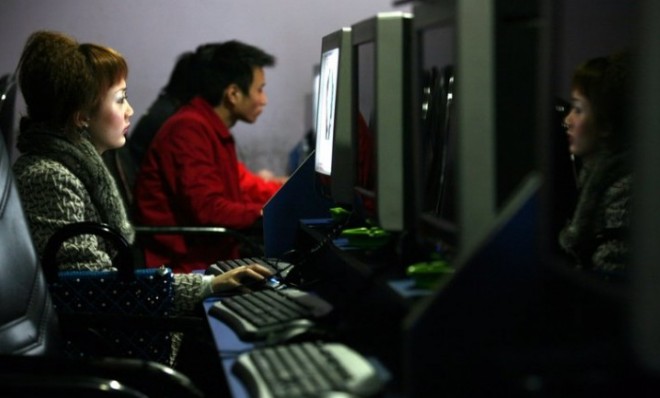China tightens internet restrictions: What does it mean for web users?
A new rule that requires internet users to give their real names to service providers, has many concerned about an even tighter crackdown on free speech


A free daily email with the biggest news stories of the day – and the best features from TheWeek.com
You are now subscribed
Your newsletter sign-up was successful
Closing a loophole that has allowed internet users to espouse uncensored political viewpoints and anonymously attack political corruption, China's National People's Congress has overwhelmingly passed a new rule that requires users to input their real names when signing up for network access. Though the Chinese government has downplayed the rule's potential impact, many analysts and cultural critics remain concerned that this is yet another step in China's attempts to quell political dissent. "Their intention is very clear: It is to take back that bit of space for public opinion, that freedom of speech hundreds of millions of Chinese Internet users have strived for," said Chinese writer Murong Xuecun. What will be the impact of China's new Internet rule? A guide:
What exactly does the new rule change?
Chinese internet users are now required to use their real names when signing up for web service. Providers will also be required to remove posts with "illegal information," save their contents, and report them to authorities. The government has not made it clear what constitutes illegal information, but in the past, internet users have been detained and even jailed for political commentary, which includes everything from accusing officials of impropriety to calling for a multiparty democracy.
The Week
Escape your echo chamber. Get the facts behind the news, plus analysis from multiple perspectives.

Sign up for The Week's Free Newsletters
From our morning news briefing to a weekly Good News Newsletter, get the best of The Week delivered directly to your inbox.
From our morning news briefing to a weekly Good News Newsletter, get the best of The Week delivered directly to your inbox.
Who will be affected?
Though it applies to all of China's 500 million-plus internet users, the new rule is particularly damaging to users of Chinese micro-blogging platforms like Sina Weibo, which is used by numerous bloggers attacking corruption in the Chinese government. Over the past year, bloggers have relied on anonymity for protection as they've exposed officials for covering up wrongdoing, hiding ill-gotten wealth, and carrying on illicit affairs. One official estimated that at present, only 70 percent of internet-enabled mobile phones were registered under real names.
What does the Chinese government say?
Li Fei, the deputy director of the legislature's Legal Work Committee, denied that the rule would be be used to protect corrupt officials. "When citizens exercise these rights according to the law, no organization or individual can use any reason or excuse to interfere, and cannot suppress them or exact revenge," said Fei. But he also offered a warning: "When citizens exercise their rights, including through use of the internet, they should stay within the bounds of the Constitution and the laws, and must not harm the legitimate rights and interests of the state, society, the collective or of other citizens."
A free daily email with the biggest news stories of the day – and the best features from TheWeek.com
How has the public responded?
Many web users, especially those on Sina Weibo, are concerned. "So now they are getting Weibo to help in keeping records and reporting it to authorities. Is this the freedom of expression we are promised in the constitution?" said one user. "We should resolutely oppose such a covert means to interfere with Internet freedom," wrote another. And given China's broad history of web censorship, which includes blocking foreign bastions of free speech like Facebook, YouTube, and Twitter, many remain skeptical that the government will actually allow internet activists to pursue corruption. And perhaps not unreasonably; Bloomberg, which also reported this story, has been blocked in China since June 29, when it featured an article investigating the wealth of President Xi Jinping.
Sources: The Associated Press (2), The Wall Street Journal, The New York Times (2) (3), The Los Angeles Times (2), Reuters, Bloomberg
Scott Meslow is the entertainment editor for TheWeek.com. He has written about film and television at publications including The Atlantic, POLITICO Magazine, and Vulture.
-
 BMW iX3: a ‘revolution’ for the German car brand
BMW iX3: a ‘revolution’ for the German car brandThe Week Recommends The electric SUV promises a ‘great balance between ride comfort and driving fun’
-
 Munich Security Conference: a showdown between Europe and Trump?
Munich Security Conference: a showdown between Europe and Trump?Today’s Big Question Report suggests European leaders believe they can no longer rely on the US for military support – but decoupling is easier said than done
-
 The Week Unwrapped: Have televised confessions quelled protests in Iran?
The Week Unwrapped: Have televised confessions quelled protests in Iran?Podcast Plus, why has Elon Musk turned from Mars to the Moon? And will the BBC prove to be a puzzles champ?
